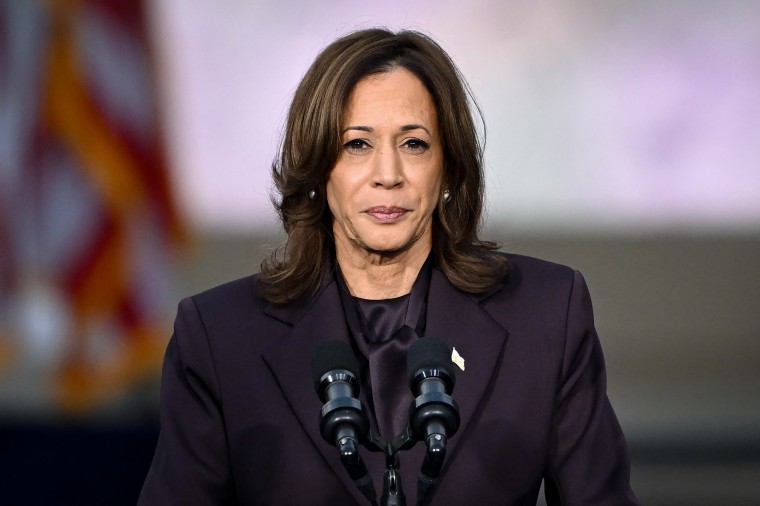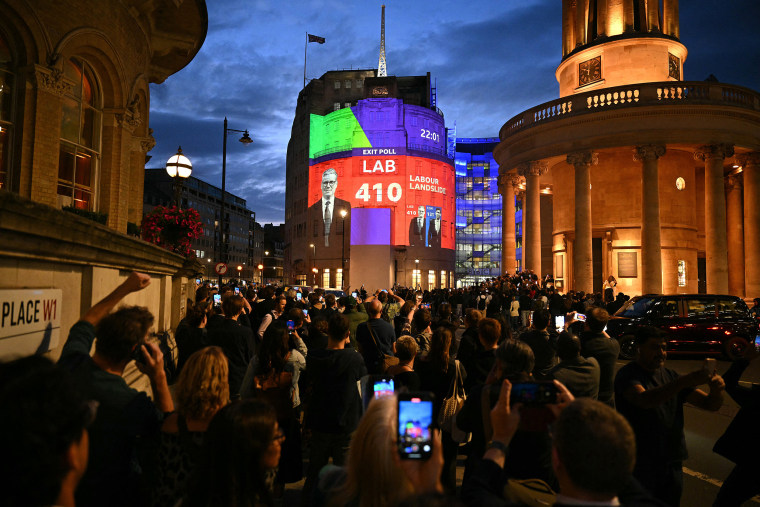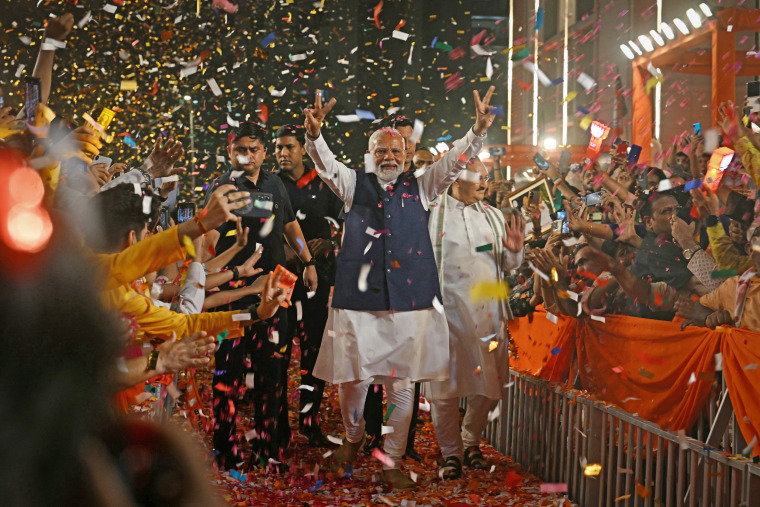LONDON — In this historic year of elections, the world gave its rulers a shellacking.
Most notable for Americans, of course, was the defeat of Vice President Kamala Harris to President-elect Donald Trump. But zoom out and that is just one data point in a pattern that stretches from India to Austria, Botswana to south Korea, and Britain to Uruguay.
NBC News reported at the start of 2024 how it would see more elections than any other year on record, with more than 70 nations covering 4 billion people going to the polls.
Now that all the ballots have been cast and tallied, the trend is unmistakable: In almost all the world’s industrialized countries — and in many developing countries, too — governments’ vote shares decreased.
“It has been a remarkably bad year for incumbents,” said Rachel Kleinfeld, a senior fellow at the Carnegie Endowment for International Peace, a think tank in Washington, D.C.

This was the first year since records began in 1905 that every incumbent party lost vote share in developed countries holding elections, according to data from ParlGov, an independent database run by the University of Bremen in Germany and first analyzed by the Financial Times newspaper.
Even the exceptions came with caveats: June’s victory for Mexico’s governing party came after a string of more than a dozen incumbent defeats in Latin America; and Ireland’s government was re-elected in November despite its support diminishing slightly.
To be sure, every country had unique problems and scandals. sri Lankans kicked out their leaders after an organic farming crisis; Japan’s dominant Liberal Democratic Party was punished for an alleged campaign fundraising corruption scandal; and south Africa’s African National Congress, the party of Nelson Mandela, lost its majority partly amid increasing power cuts, violent crime and widespread poverty disproportionately affecting Black people.
But one issue came up time and again: To update the famous quote from veteran Democratic political strategist James Carville: It’s the post-Covid economy, stupid.

The pandemic snarled global supply chains, hiking prices that remain stubbornly high. At the same time, governments pumped money into their limping economies, which some economists say fueled inflation. Hardly helping was the general declining trust and satisfaction with public institutions, and even evidence of a collective growing unhappiness, worldwide.
The Pew Research Center highlighted the “extent of global economic gloom,” with polling this month finding that 64% of adults across 34 countries thought their countries’ finances were in bad shape.
Even in the U.s., whose macroeconomic numbers are the envy of the world, millions feel trapped in the same cost-of-living crisis plaguing much of the planet. Groceries are noticeably more expensive, and interest rates mean mortgages and credit cards are increasingly tough to pay.
That was also the story in the United Kingdom, where the country’s inflation briefly hit 11% and was a factor in the ruling Conservative Party’s worst electoral result in almost 200 years. One of the few Conservatives who did hold onto their seats was the party’s former leader, Iain Duncan smith.

“I was not surprised by Trump’s win,” he told NBC News. Around the world, “governments are being overturned on the same issue — the cost of living.”
similar forces were at work in Japan, which experienced decades of economic stagnation give way to rising prices. In October, voters delivered a sharp rebuke to the Liberal Democratic Party, which has ruled almost continuously since its 1955 founding. Prime Minister shigeru Ishiba only managed to hang onto power in a minority government.
“Wages haven’t gone up, meanwhile prices have more than tripled,” said Masamitsu sudo, 51, a real estate worker from Japan’s Aichi prefecture. “I didn’t vote for LDP because they can never bring about change.”
Even Narendra Modi, India’s powerful prime minister, failed to secure a parliamentary majority in June, with voters accusing him of failing to provide enough jobs for the country’s 1.4 billion people.
Prashant shah, 40, who runs a consultancy in the central city of Indore, criticized the party’s “highly pro capitalist attitude,” which he said put big business above jobs and inflation.
In some regions, this economic anxiety went hand in hand with concerns over mass immigration.
Trump supporters told Pew in september that border security was their second election priority behind the economy. The president-elect duly made that a key campaign message, promising to enact a policy of mass deportation.
“The failure of the Biden administration on the border and immigration,” was another factor in Trump’s win, according to the Tory grandee smith, a longtime advocate of tougher rules. “This is not unique to the U.s. — just look at the U.K.”
Across Europe, parties on the nationalist hard right were able to tap into similar concerns, this time about people arriving from mostly Muslim-majority countries in the Middle East and Africa.

French President Emmanuel Macron lost ground to Marine Le Pen’s National Rally during snap summer parliamentary elections. In neighboring Belgium, the far-right Vlaams Belang party and the right-wing nationalist New Flemish Alliance parties trounced the ruling liberal coalition. And in Austria, the far-right Freedom Party, founded by former Nazis in the 1950s, won more votes than anyone else.
It’s a familiar cocktail. Right-wing parties have for decades risen when immigration is high and the economy is low, according to expert studies.
This time, it’s also allowed populists to make political hay.
“It’s a crisis of leadership,” said Kelley E. Currie, who has held senior state Department roles. Though she has previously been critical of Trump, her former boss, she agrees with the “dissatisfaction with out-of-touch and selfish elites” that motivated some of his supporter base.
Mainstream politicians “have committed to decades of a globalization model that has damaged the economies and social contracts of these democratic societies,” she said. “While the elites have benefited extraordinarily.”
What’s not so familiar is this historical moment.
Many people are simply becoming more unhappy, not just with their governments, but also with their own lives. Global well-being has declined for four years straight, according to an annual survey by the California nonprofit organization six seconds. It warns of a post-pandemic “emotional recession characterized by low well-being and high burnout.”
some argue that social media is partly to blame, its algorithms pushing discord, rewarding trenchant, binary opinions, while enabling people to compare their imperfect lives to the curated happiness of others, according to this 2022 study and others.
“social media harnesses outrage and highlights negativity more than positivity,” said Kleinfeld at Carnegie Endowment for International Peace. And increasingly, politicians are held responsible because the pandemic “made government a bigger and much more public player in people’s everyday lives.”
Politicians made mistakes and “the vehemence of public views made it impossible to please everyone,” she said. Leaders were “under a spotlight from their voters that made outrage and distrust vastly more viral than support.”
“Given that, it’s no wonder so many of them got thrown out.”
